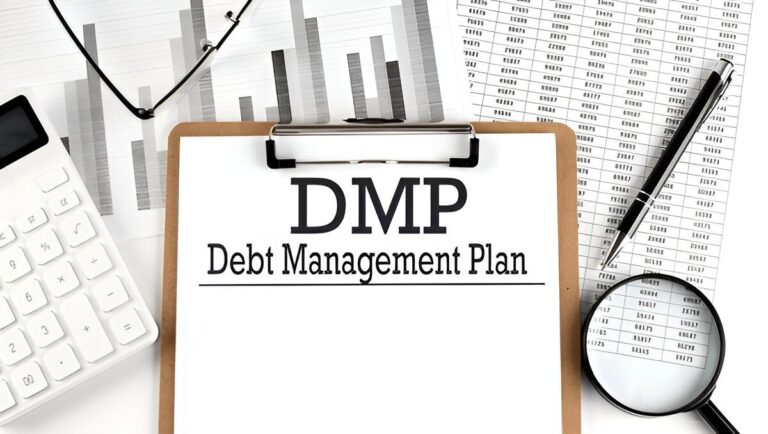Image Credit: Shutter Stock
Debt can feel overwhelming, but it doesn’t have to control your life. If you’re struggling to keep up with multiple payments or feeling buried under high-interest rates, a dept management plan might be the solution you need. This article will explain what a debt management plan is, how it works, and why it could be the key to regaining your financial freedom.
What is a Debt Management Plan?
A debt management plan (DMP) is a structured program designed to help individuals repay their debts in a more manageable way. It’s not a loan or a way to erase your debt—instead, it’s a strategy to simplify your payments and potentially reduce interest rates or fees. Typically, a credit counseling agency works with your creditors to create a plan that fits your budget.
Also Read: IVA Pros and Cons: Is It Right for You?
How Does a Debt Management Plan Work?
When you enroll in a dept management plan , a credit counselor will review your financial situation, including your income, expenses, and debts. They’ll then negotiate with your creditors to lower interest rates or waive certain fees. Once the plan is set up, you’ll make a single monthly payment to the credit counseling agency, which will distribute the funds to your creditors.
This approach not only simplifies your payments but also helps you pay off your debt faster by reducing the amount of interest you’re charged. Plus, it can stop harassing calls from creditors, giving you peace of mind.
Benefits of a dept management plan
- Simplified Payments: Instead of juggling multiple due dates and amounts, a debt management plan consolidates your payments into one.
- Lower Interest Rates: Credit counselors often negotiate lower rates, saving you money over time.
- Reduced Stress: Knowing you have a clear path to becoming debt-free can ease financial anxiety.
- Avoid Bankruptcy: A DMP can help you avoid the long-term consequences of bankruptcy while still addressing your debt.
Also Read: IVA with Navigate Debt : Your Path to Financial Freedom
Is a Debt Management Plan Right for You?
A debt management plan is ideal for those with unsecured debts, like credit card bills or medical expenses, who are struggling to make minimum payments. However, it’s not a one-size-fits-all solution. If your debt is primarily secured (like a mortgage or car loan) or if you’re unable to commit to a monthly payment, other options might be more suitable.
Tips for Success
- Stick to Your Budget: A DMP only works if you’re disciplined with your spending.
- Communicate with Your Counselor: If your financial situation changes, let your credit counselor know so they can adjust your plan.
- Avoid New Debt: Focus on paying off existing debts before taking on new ones.
Also Read: IVA Debt Help: A Comprehensive Guide to Managing Your Debt
Conclusion
A debt management plan can be a powerful tool for anyone struggling with debt. It simplifies payments, reduces stress, and helps you regain control of your finances. By working with a credit counseling agency, you can create a plan tailored to your budget and financial goals. While it requires commitment and discipline, a debt management plan offers a clear path to becoming debt-free without resorting to extreme measures like bankruptcy.
If you’re feeling overwhelmed by debt, don’t hesitate to explore this option. With the right plan and mindset, you can take the first step toward financial freedom and build a more secure future.
FAQs
1. What is a debt management plan?
A debt management plan is a program that helps you repay your debts through a structured payment plan. It’s typically set up by a credit counseling agency, which negotiates with your creditors to lower interest rates or waive fees.
2. Will a debt management plan hurt my credit score?
Enrolling in a debt management plan may initially impact your credit score, but over time, it can improve your score as you make consistent payments and reduce your debt.
3. Can I include all types of debt in a dept management plan?
No, a debt management plan usually covers unsecured debts like credit cards, medical bills, or personal loans. Secured debts, such as mortgages or car loans, are not included.
4. How long does a debt management plan take?
Most debt management plans last between 3 to 5 years, depending on the amount of debt and your ability to make monthly payments.
5. Can I still use my credit cards while on a debt management plan?
No, most creditors will require you to close your credit card accounts while on a debt management plan. This ensures you focus on paying off existing debt without accumulating new debt.
6. Is a debt management plan the same as debt settlement?
No, a debt management plan focuses on repaying your debt in full, often with reduced interest rates. Debt settlement, on the other hand, involves negotiating to pay less than the full amount owed, which can negatively impact your credit score.
7. How do I find a reputable credit counseling agency?
Look for agencies accredited by organizations like the National Foundation for Credit Counseling (NFCC) or the Financial Counseling Association of America (FCAA). Always research reviews and avoid agencies with high fees or unrealistic promises.
8. What happens if I miss a payment on my debt management plan?
Missing payments can jeopardize your plan. If you’re struggling to make a payment, contact your credit counselor immediately to discuss possible adjustments.



